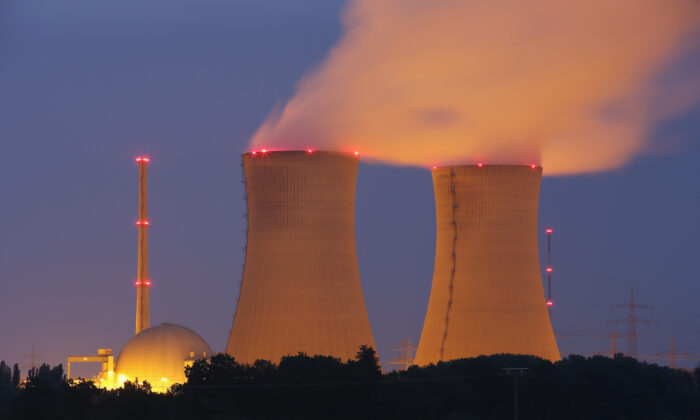Desperate Cry From China’s Xinjiang Region Amid Strict Lockdown (1)
The U.S. Department of Commerce and Russia’s state atomic agency have initialed a draft amendment extending a 1992 agreement that will, if finalized, slash America’s reliance on Russian uranium.
The Commerce Department is hoping to seal the deal by Oct. 5 at the latest, the agency said in a press release, noting that the amendment would extend the Agreement Suspending the Antidumping Investigation on Uranium from the Russian Federation to 2040 and so “reduce U.S. reliance on uranium from Russia” for the next 20 years.
Under the 1992 agreement, which saw a series of amendments added over the years, with the latest in 2008, the amount of Russian uranium entering the American market is restricted by quotas. The most recently agreed upon limits are due to lapse this year.
“This draft agreement represents an important step forward for the American nuclear industry,” said Secretary of Commerce Wilbur Ross in a statement. “If finalized, it will contribute to the restoration of America’s nuclear energy advantage and protect the domestic industry from dumped Russian uranium.”
The draft amendment, which has been released by the Commerce Department for public comment ahead of its expected adoption, would see Russian uranium exports to the United States drop from the current approximately 20 percent of U.S. enrichment demand to an average of around 17 percent over the next two decades, before falling to a target of 15 percent starting in 2028.
“By extending and reducing the Agreement’s export limits, the draft amendment would enable the U.S. commercial enrichment industry to compete on fair terms,” the Commerce Department stated.
 Then-Russian Federal Atomic Energy Agency Director Sergey Kiriyenko (L) and then-U.S. Secretary of Commerce Carlos M. Gutierrez (R) confer during the signing of a uranium export agreement near Washington on Feb. 1 2008. (Paul J. Richards/AFP via Getty Images)
Then-Russian Federal Atomic Energy Agency Director Sergey Kiriyenko (L) and then-U.S. Secretary of Commerce Carlos M. Gutierrez (R) confer during the signing of a uranium export agreement near Washington on Feb. 1 2008. (Paul J. Richards/AFP via Getty Images)The amendment would also establish more protections for U.S. uranium miners and the U.S. uranium converter. Currently, Russia can use all of its export quota to sell not just the enrichment portion of low-enriched uranium, but also natural uranium concentrates and conversion components. The amendment would cap the uranium components at around 7 percent of U.S. enrichment demand until 2026, at which point it would drop even further to just 5 percent.
Another measure includes preventing so-called “returned feed” uranium to be traded outside the current export quotas. This is natural uranium delivered by U.S. customers to Russian exporters, which is enriched in Western Europe and exported to the United States outside the agreement’s current export limits. The amendment would subject this type of “returned feed” uranium to export restrictions.
In May, a bipartisan group of U.S. senators urged the Commerce Department to extend the uranium agreement, calling for the agency to “to reduce imports of Russian uranium, protect America’s energy and national security interests, and to limit Russia’s ability to manipulate America’s uranium markets.”
In a letter (pdf), the senators called for a reduction of imports of Russian uranium to below existing limits, which they said would protect America’s natural uranium fuel supply chain from “aggressive and illegal trade practices of nuclear state-owned enterprises of foreign adversaries.”
In 2019, President Donald Trump created the Nuclear Fuel Working Group (NFWG) to recommend actions to strengthen America’s nuclear fuel supply chain. On April 23, the Department of Energy published a report (pdf) that documents Russia’s approach to the U.S. nuclear sector and concludes that Russia has “weaponized” its energy supplies and that its efforts to dominate America’s nuclear fuel cycle pose a serious threat to national security.
Focus News: US Government Issues Draft Amendment to Cut Reliance on Russian Uranium
China’s Human Rights Record Under Scrutiny As Sino-EU Summit Draws Near
